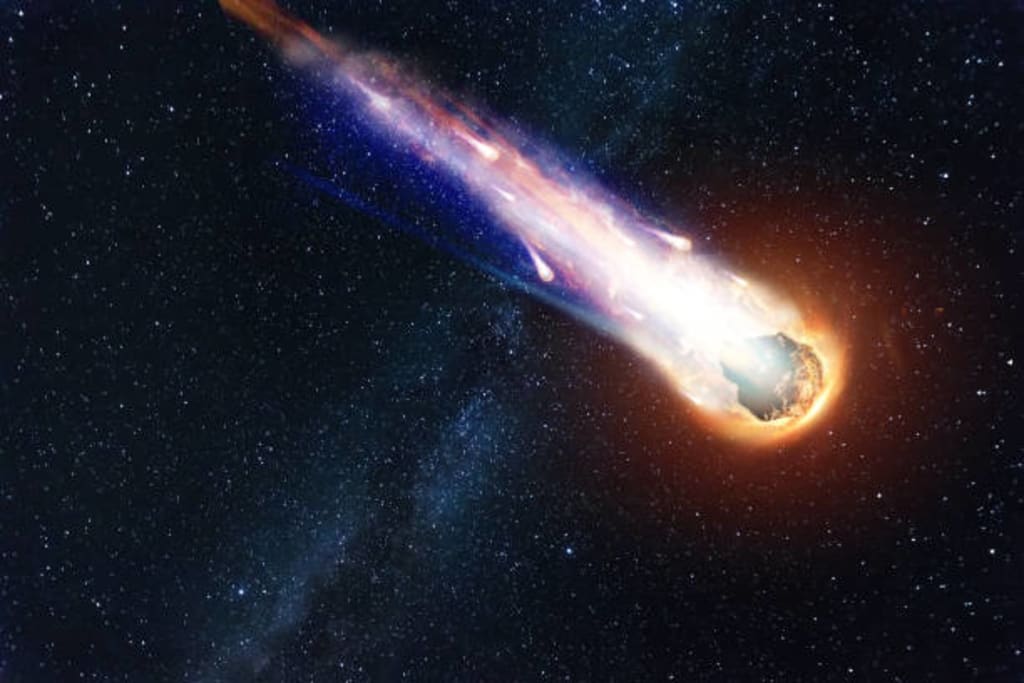Brace for Impact: How to Survive an Asteroid Apocalypse
Outsmarting Extinction with Prehistoric Survival Tactics and Modern Ingenuity

Picture this: You're chillin' 66 million years ago during the late Cretaceous Period. Dinosaurs are the ultimate party animals, with T-Rexes chasing Triceratops for sport and the Apatosaurus towering over Texas like the world's first skyscraper. Meanwhile, the Ankylosaurs, the OG armored tank, is swinging its tail like it's auditioning for a wrecking crew.
Star Light, Star Bright... Oh Wait, That's Not Right
One fine evening, as you're stargazing and enjoying a prehistoric picnic, a new light appears in the sky. At first, it’s just another twinkling dot. But within hours, it grew brighter. By the next night, it outshone the moon, then the planets, and finally, in a horrifying turn of events, it eclipses the sun itself. Meet the Chicxulub asteroid, Earth's uninvited guest from space.
Cosmic Cannonball: The Asteroid Hits
This space rock isn't just passing through. It's crashing the party at 12.5 miles per second, punching through 60 miles of atmosphere faster than you can say "mass extinction."
The air heats up to thousands of degrees, vaporizing everything in its path, including a chunk of the sea near the Yucatán Peninsula. The ground beneath turns into a molten soup, and the impact digs a hole so deep it nearly reaches Earth's core.
Instant Chaos: Earth’s Worst Day Ever
BOOM! The impact unleashes energy that makes the sun look like a flickering candle. The explosion creates a plasma ball, vaporizes rocks, and turns the crash site into a glowing inferno. Shockwaves race around the globe, causing earthquakes, and the sky fills with fiery debris. Global wildfires ensue, burning forests and turning the world into a colossal campfire from hell.
Dinosaurs? Toast. 75% of species? Gone.

How to Not Join the Extinct Club
Okay, so how do we humans avoid becoming the next dino dinner special? Let's take notes from the survivors of the Chicxulub event. Ground-nesting birds and burrowing critters like small mammals, snakes, and lizards made it through. Their secret? Staying low and staying cool.
Your Asteroid Survival Guide
- Dive Underground: As soon as you spot the cosmic intruder, find a deep cave with a narrow entrance. This will shield you from falling debris and keep temperatures stable.
- Stay Inland: Tsunamis will wreak havoc on coastlines. Head as far inland as possible to avoid getting swept away.
- Plan for the Long Haul: The impact will block out sunlight with sulfur and soot, plunging Earth into a years-long winter. Pack warm clothes and stock up on food.
Finding Your Survival Sweet Spot
Tropical islands like those in Indonesia are your best bet. These areas will retain some warmth and rainfall. Look for caves near freshwater sources – these places will become your lifeline.
Freshwater ecosystems tend to bounce back faster, offering you a chance to scavenge for food.
The (Not So) Great Outdoors
When the dust settles, the world will look like a nuclear wasteland. The few surviving tropical islands will be your safe havens, though they’ll still be chilly and gloomy. Pack for a post-apocalyptic camping trip, with lots of layers and enough food to last at least six years.
Your Final Frontier
Surviving a dino-killer asteroid is no walk in Jurassic Park. It's about quick thinking, strategic planning, and a bit of luck. Dive into a deep cave, stay away from the coast, and find a tropical hideaway. And whatever you do, if you spot any shrew-like creatures while scavenging for food, let them be. They might just be your great-great-great-great-great-great-grandparents.
So, grab your asteroid survival kit and get ready to outsmart extinction. Who knows, you might just become the next star of Earth's evolutionary saga!
About the Creator
Mojalefa Mokoena
Discover the world through the eyes of Mojalefa Mokoena, a passionate storyteller from the heart of South Africa. Mojalefa's narratives blend cultural richness with contemporary insights, offering a unique perspective on global themes
Enjoyed the story? Support the Creator.
Subscribe for free to receive all their stories in your feed. You could also pledge your support or give them a one-off tip, letting them know you appreciate their work.






Comments (1)
thanks it was nice open my link https://vocal.media/earth/the-silent-desperation-of-climate-refugees